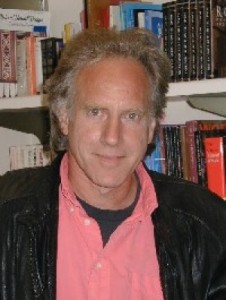 Entitled Opinons is a gem of a podcast. It began almost a decade ago, offering intelligent and informed discussion about a variety of subjects: art, literature, music, philosophy and science. It’s hosted by Robert Harrison, a professor at Stanford University, my alma mater. In April, Harrison spoke with a philosopher from Boston College, Richard Kearney, about “God after God,” or “anatheism.” It delved into how 20th century postmodern thinkers, such as Emmanuel Levinas, Jacques Derrida and Paul Ricoeur, found ways of finding meaning in the concept of faith, without allegiance to any particular religious tradition.
Entitled Opinons is a gem of a podcast. It began almost a decade ago, offering intelligent and informed discussion about a variety of subjects: art, literature, music, philosophy and science. It’s hosted by Robert Harrison, a professor at Stanford University, my alma mater. In April, Harrison spoke with a philosopher from Boston College, Richard Kearney, about “God after God,” or “anatheism.” It delved into how 20th century postmodern thinkers, such as Emmanuel Levinas, Jacques Derrida and Paul Ricoeur, found ways of finding meaning in the concept of faith, without allegiance to any particular religious tradition.
Talking about Ricoeur’s “anatheism”, Kearney explained, this new notion of faith abandons the stern, judgmental, sovereign God of the Old Testament. In its place is a vision of a God who makes it possible for people to transform hostility into hospitality. As Kearney puts it:
(God emerges) in something other than the ordinary happenstance. We have let go of the Superintendent of the Universe, is there something that can come back, after (the disappearance of this) God, that we can still legitimately call God. In our secular West, where atheism is almost mandatory (for college faculties), what do we say to the other 95 percent of the world? They still believe in something called God. Do we simply want to dismiss them as Dawkins and Hitchens and the Anti-God Squad do? Is there something very legitimate and real and fundamental in the name God?
His answer is a quietly persuasive yes. God emerges in acts of compassion between strangers. Someone unfamiliar knocks on your door looking for help or shelter and despite your instinctive hostility you invite the stranger in. That’s the paradigm for how God changes the world. Put your fears and selfish interests aside for the sake of another human being, especially a stranger.
I completely agree with the notion of faith embodied through human service. He called it an ethical imperative to convert hostility to hospitality. Putting another person before yourself, opening the door for the unfamiliar guest is something anyone can choose to do, but most don’t. Kearney says God is the name for what opens that door.
There are many proper names for God. Why use any of them to talk about this moment? Because, he says, it is impossible to man. This is a phrase that comes back again and again. Sarah says Abraham does the impossible. He turns enemies into guests. The divine happens then. God is born in that moment. In the story of the three strangers (they invite into their home), they say ‘you will have a child.’ She says ‘that is impossible. We will come back in a year and you will have a child.’ You must be joking!”
She is barren; her husband is 560 years old. But it happens. They told her to believe it could happen, and it did. What follows is the remark that won me over. He describes how this story, and the parallel story when Mary is told she will give birth to Jesus, another impossibility, is the model for historical events, for changes in the world, inspired by a faith in what seems beyond human will. Kearney brings it down to earth by talking about political reconciliations. “It happened in Northern Ireland when the head of the Protestant faction shakes hands with the head of the IRA. It happened with Gandhi. It happened with Mandela. It happens all the time when what was thought to be impossible actually happens.”
Kearney says that God is simply the name for whatever it is within us that makes extraordinary compassion possible. Harrison asks again why, in all this, should anyone cling to the notion of God? Why not simply believe in the impossible? Kearney says it isn’t about belief in an idea of God, but behavior. It isn’t an intellectual position, but a way of life that acknowledges the limits of human will and understanding. Otherwise, you waste your time arguing positions “about something that we know nothing about.”
Socrates says philosophy begins by acknowledging that you know nothing. Faith begins, says Dostoevsky, out of the crucible of doubt. Keats put it even better, when he said a poetic faith is being in a condition of what he called negative capability: (enduring) mystery, uncertainty, and doubt, without the irritable reaching after fact and reason. So there you are faced with an impossible situation, how do we get peace from violence? By having faith in the impossible. God is a name for the event of the impossible: that it can happen.
For Kearney, faith is trusting that a higher power, however that power is defined, can make extraordinary things possible, though human choice. I don’t know Kearney personally, but would invite him into my house any time.